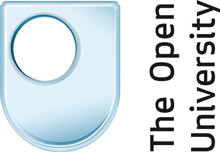Wednesday, August 18. 2010

Open Research Online:
A self-archiving success story.
Smith, Colin; Yates, Christopher and Chudasama, Sheila (2010)
5th International Conference on Open Repositories 6-9 July 2010, Madrid, Spain.
Colin Smith [CS] et al:
"...Much debate exists in the literature, on listservs, and in the blogosphere as to whether a successful and sustainable repository can be achieved solely through advocacy, management, and development, or whether this is only likely to happen if an institutional mandate is introduced. A much quoted figure is that a non-mandated repository is only likely to capture around 15% of its institution's research output, and at the very most (for an Incentivised Repository) 30% (Harnad, 2009).
"In this poster, we use the example of Open Research Online - the research repository of the Open University - to show that dedicated management and active development and advocacy of an institutional repository can lead to very successful results under the self-archiving model, in this case capturing regularly an estimated 60% of peer-reviewed journal output. Also demonstrated is the significant rise in full text (i.e. fully open access) items in the repository since the implementation of this approach."
Note Added:
"To clarify [for Andrew Adams]... it is not 60% of the estimated refereed journal output of the OU that is deposited in full text format; a proportion is metadata-only items. Looking at my data over the last year, the split is around 56/44 (full text/metadata-only)."
SH:
Is that 34% [56% x 60%] of OU's yearly research article output? How did you do that estimate? (We used Thompson/Reuters Web of Science data to estimate staff annual article output.) CS:
"I look at it monthly based on Web of Science (WoS) data only (one month and six months after being indexed by WoS), but then I look at it on an annual basis based on WoS and Scopus data combined. I carry out the monthly check manually (i.e. by subscribing to WoS alerts and checking if they've been included in ORO), but for the annual analysis I got my developer to write a script which cross-checks DOIs and paper titles from de-duplicated WoS and Scopus data.
"In case it wasn't clear, the poster was not about saying that mandates aren't needed. It was more about demonstrating that if you have to hang around waiting for one to be implemented, or if you are at an institution where your superiors are against introducing one, encouraging results can still be achieved". SH:
 Would you be willing to give me permission to post it, along with your response, above? -- Of course, what would be even more helpful would be if I could also add a passage in your own words about what needs to be done at an institution that does not yet have a mandate, in order to achieve a deposit rate as good as OU's [56% x 60% = 34%]. It would give institutions and IR managers something concrete to do while they are trying to get a deposit mandate adopted! CS:
"Ok, here are a few thoughts...
On the advocacy front, I would say giving people actual real-world examples/demonstrations of the benefits of green OA. If you know you are talking to, say, the Biology Department about the repository, prepare in advance some impressive Google searches featuring some journal articles already deposited by Biologists from your institution. I normally give them two scenarios to think about:
"(1) Imagine an academic who knows the title of the paper she wants to read... she's tried her Library and found her institution doesn't subscribe to the journal... so she plugs it into Google... hey presto, there it is, in the top 10 hits, in our repository... now she clicks through... wonderful, the full text is available... she goes on to cite the paper... as might many other people from around the world who find the paper in a similar way, and so on...
"(2) Imagine an academic conducting a general literature research... most turn straight to Google these days... they plug in "spinal cord repair research" [or whatever search you have prepared in advance]... and there you go, a paper from your department in the repository in the top 10 Google hits, and so on.
"Demonstrating the power of the repository leaves a lasting memory in the minds of the people you are addressing, rather than just a bunch of woolly statements that send your audience to sleep.
"The other thing is what I call "individual advocacy", which basically means taking the time to communicate and educate individuals at your institution about open access, copyright etc., rather than relying solely on getting yourself on the bill of department or research meetings. No one likes being in meetings, and so having to spend another half an hour listening to someone from the Library bang on about the repository doesn't always work, unless you capture their attention with good examples, as mentioned above. However, keeping an eye on what's being published by your institution, and then getting in touch with an academic and talking to them about the research their group is working on... and have they thought about where they are going to publish... and do they know what rights they retain when publishing in that journal... and have they thought about open access etc. etc., I find tends to get you results. And then, of course, when you start to make some inroads in this way, the message spreads outwards from there.
"Moving away from advocacy, I think it's really important to have a technical developer onboard, or at least access to one that can make the improvements to the repository you as the manager want and know your academic community needs. As part of this, embedding data feeds from the repository in as many other institutional systems as possible across campus is a real winner. For example, one of our faculties is currently rebuilding its entire website and, in the process, is using data from the repository to build publications lists for its staff and research groups. So, if academics in this faculty do not keep the repository up to date, then the publication lists in their staff pages and research group pages on their faculty web pages will also be out of date.
"I could go on, but I imagine this is enough for you..." -- Colin Smith
|




